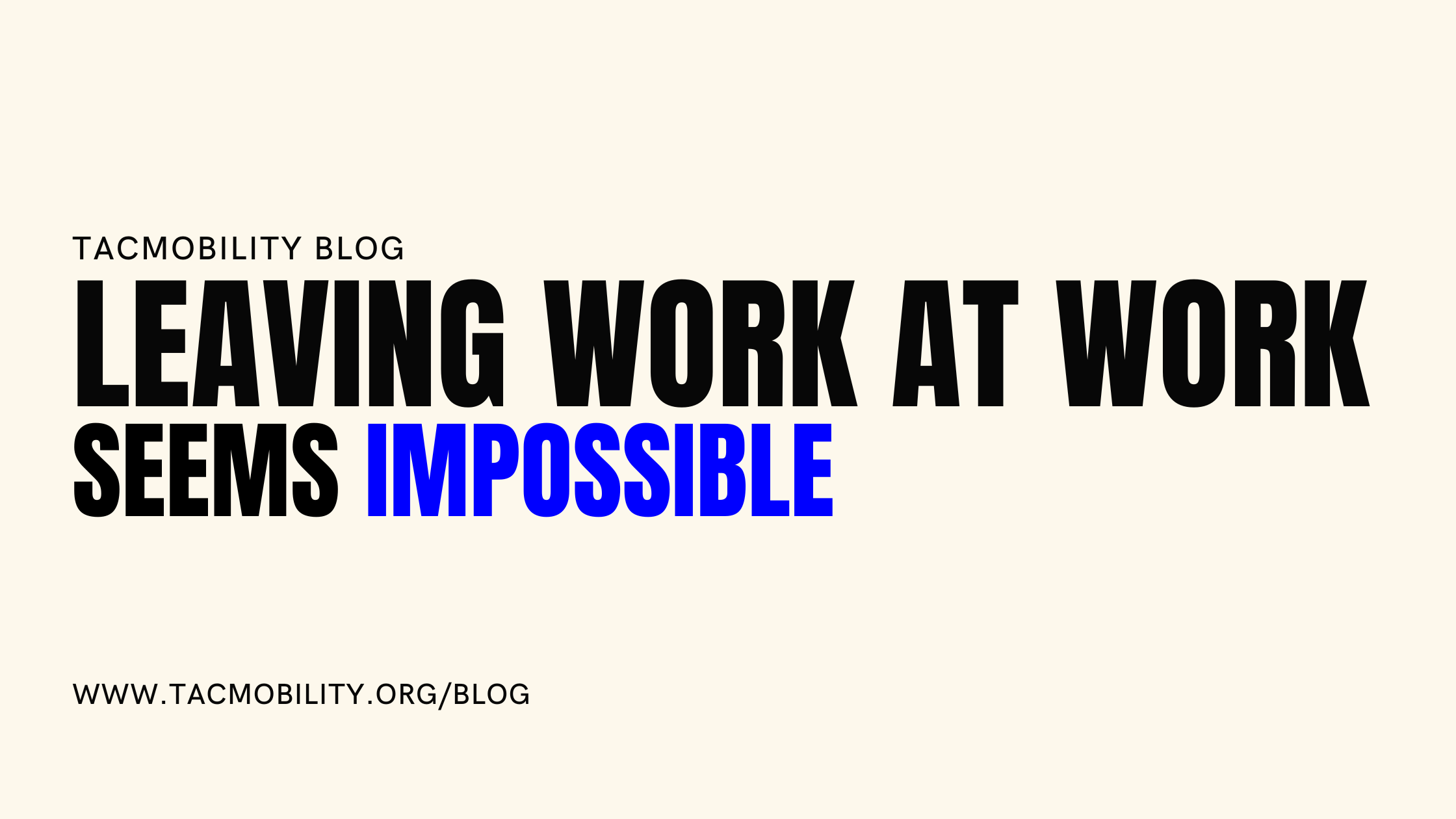Leaving Work At Work Seems Impossible
Leaving work at work is great in theory, but it is next to impossible to accomplish.
Policing can impact you in obvious ways but sometimes it’s subtle. Often, it’s preached to not bring work home because it will impact your family life. Which can be true, but if you take that in and do the best you can to not talk about it with your family, where does that leave you? Isolated, depressed, and suppressing your feelings. This strategy of leaving work at work is simply not sustainable for first responders.
Rather than preaching “Don’t bring work home”, let’s identify 1) common ways that the emotional impact of work might come home and, 2) the subtle ways it sneaks in.
Examples of common ways:
You’re in a bad mood when you get home because people yelled at you during your shift.
You witness a tragic scene and trauma symptoms start popping up at home: irritability, flashbacks, nightmares.
When you’re out in public, your back needs to be towards the wall out in public so you can see everything.
Examples of subtle ways might be:
Sergeants/supervisors look for errors/discrepancies/mistakes in your reports so you may be more likely to look for mistakes or errors in your family where you didn't before.
You might be inclined to distrust your significant other because people lie to you all shift.
You are used to “ask, tell, make” on shift and find yourself parenting that same way but that approach isn’t working for your family.
Bringing awareness to the both the direct and subtle ways the job impacts you, gives you the power to change things.
Ways you can improve your family life:
Sit down with your partner and decide together what kinds of details your spouse would like to know about your workday. Perhaps this is how you felt about calls and how they impacted you rather than the details of what happened.
Sit down with your kids and decide together what consequences should look like. This moves you away from the zero-tolerance, authority style that you are used to and gives you and your kids a chance to work together. Consequences need to exist but them having their input can help make it go over better when they helped decide those consequences.
Get curious about the discrepancies or errors you notice rather than zero in on it. Is the discrepancy an important detail? Is it hurting someone or something, etc.? If no, ask yourself if you’d like to talk about it with the person or if we can chalk it up to an innocent mistake?
Regulate your emotions with breathing or grounding techniques regularly throughout the day so you aren’t in a huge emotional deficit by the time you get home.
Mel is a licensed associate therapist that specializes in first responders and is the wife of a trooper. She is passionate about bringing good, practical wellness solutions to first responders.
#lawenforcement #police #stress #work #burnout #tacmobility #mentalhealth #wellness #recovery #anxiety #anxious #stressreduction #policelife #copsofinstagram #policeofficers #lawenforcementofficer #firstresponder #cops #coplife #policelife #policeofficer
















